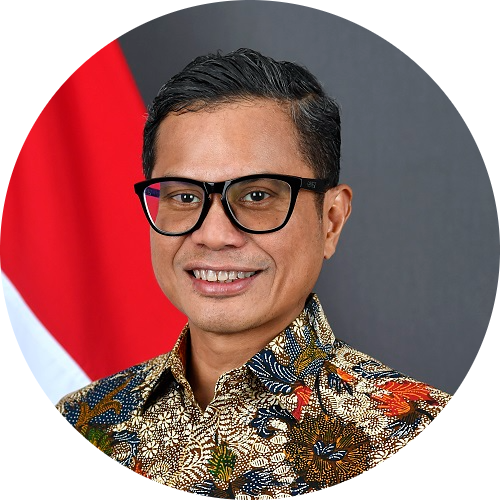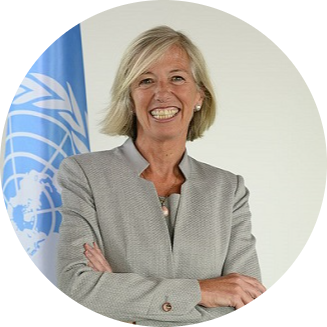About us

| |
|
The theme of KBI XII 2023, " Literacy in Diversity to Advance the Nation," implies that the need to strengthen literacy should be developed from the awareness of diversity which is a part of Indonesia’s identity, which includes a diversity of customs, ethnicities, languages, and religions. Diversity, an integral part of Indonesia, is an asset that can bring wealth and power, eventually building a sense of pride in being a diverse nation. Ultimately, diversity can be a powerful asset to advance the nation.
Subtheme 1. Local Language and Literature Revitalization a. Transmission of the mother tongue or local language within families, schools, and communities b. Documentation of Local Languages, Literature, and manuscripts c. Roles of Regional Governments and Communities in Preservation of Local Languages d. Recent Studies on Local Languages e. Strategies on the Utilization of Information Technology in Preservation of Local Languages and Literature
2. Literacy of the Indonesian Language and Literature a. Literacy in the Digital Era b. Literacy’s Instructional Materials c. Proficiency Measurement of Literacy in the Indonesian Language d. Roles of Communities in Strengthening Literacy e. Dignifying National Language in Public Spaces
3. Internationalization of the Indonesian language (leading to improvement of literacy of local languages and literature as well as literacy of Indonesian language and literature) a. Optimizing Indonesian Language Diplomacy through BIPA (Indonesian Language for Foreign Speakers) b. Optimizing Roles of Representatives, Partners, and Indonesian Diaspora Residing in Foreign Countries in the Internationalization of the Indonesian Language c. Optimizing Roles of Ministries and Institutions within the Republic of Indonesia in the Internationalization of the Indonesian Language d. Roles of Literature and Culture in Language Diplomacy e. Translation Program as a Strategy of Indonesian Language DiplomacyHistory of Indonesian Language Congress (KBI) 1. Indonesian Language Congress I (KBI I) The Indonesian Language Congress I was held on the initiative of an individual, namely Raden Mas Soedardjo Tjokrosisworo, a journalist for the Soeara Oemoem Soerabaja Daily and Soemanang Soerjowinoto Daily and director of Perguruan Rakyat. The congress was held as a follow-up to the Youth Congress 1928. At the Youth Congress 1928, Indonesian youth vowed to uphold the uniting language: the Indonesian language.
2. Indonesian Language Congress II (KBI II) The Indonesian Language Congress II was opened by President Soekarno on Thursday morning, October 28, 1954, at Gedung Kesenian, Jalan Bali Number 2 (now Jalan Veteran), Medan. The First Lady, Mrs. Fatmawati Soekarno, held a book exhibition as a part of congress activities. The exhibition is the first national book exhibition to be held in Indonesia.
3. Indonesian Language Congress III (KBI III) The Indonesian Language Congress III was held on October 28 to November 3, 1978 in Jakarta. The congress, which was held in commemoration of the 50th Youth Pledge, not only showed the progress, growth and development of the Indonesian language since 1928 but also endeavoured to strengthen the position and function of the Indonesian language.
4. Indonesian Language Congress IV (KBI IV) The Indonesian Language Congress IV was held on November 21—26, 1983 in Jakarta. This congress was held in commemoration of the 55th Youth Pledge Day. In the resolution of this congress, it was stated that the cultivation and development of the Indonesian Language had to be increased so that the mandate stated in the Broad Guidelines of State Policy (GBHN), which obliges all Indonesian citizens to use the Indonesian language properly and correctly, could be achieved to the extent possible.
5. Indonesian Language Congress V (KBI V) The Indonesian Language Congress V was held on October 28–November 3, 1988 in Jakarta. This congress was attended by around 700 experts in Indonesian Language all over Indonesia and guests from foreign countries, such as Brunei Darussalam, Malaysia, Singapore, the Netherlands, Germany, and Australia. The congress was marked by the launch of masterpieces of the Center for Language Cultivation and Development, such as Kamus Besar Bahasa Indonesia (The Great Dictionary of Indonesian Language) and Tata Bahasa Baku Bahasa Indonesia (Indonesian Grammar Book) as a tribute to language enthusiasts in Indonesian archipelago.
6. Indonesian Language Congress VI (KBI VI) The Indonesian Language Congress VI was held on October 28–November 2, 1993 in Jakarta. This congress was attended by 770 experts in Indonesian Language all over Indonesia and 53 guests from foreign countries, such as Australia, Brunei Darussalam, Germany, Hong Kong, India, Italy, Japan, Russia, Singapore, South Korea, and the United States of America. The congress recommended the improvement in institutional status, including the institution's name change from the Center for Language Cultivation and Development to the Indonesian Language Institute, as well as the formulation of law regarding Indonesian Language.
7. Indonesian Language Congress VII (KBI VII) The Indonesian Language Congress VII was held in Hotel Indonesia, Jakarta, on October 26–30, 1998. The theme of the congress was “The Strengthening of Roles of Language as a Means to Develop Nation in Era of Globalization”. One of the congress’ significant recommendations was the establishment of Badan Pertimbangan Bahasa (the Agency for Language Considerations) of which members included figures in society and experts who had concerns about language and literature. The members were responsible for, among others, giving advice to the Center for Language Cultivation and Development and striving for improvement in institutional status of the Center for Language Cultivation and Development.
8. Indonesian Language Congress VIII (KBI VIII) In October 2003, Indonesian language experts and devotees organised the 8th Indonesian Language Congress. Corresponding to the Youth Pledge in October 1928, which proclaimed the unity of homeland, nation and language, October is also celebrated annually as the month of Language and Literature. In this year's celebration, some seminars on language and literature were held at various institutions that had been paying attention to the development of the Indonesian language. The celebration of The Month of Language and Literature in 2003 has also become part of the 8th Indonesian Language Congress.
9. Indonesian Language Congress IX (KBI IX) In commemoration of the 100th year of the National Awakening, the 80th year of the Youth Pledge, and the 60th year of the establishment of the Language Centre, in 2008, the National Language Centre stated the year as the Language Year. Language and literature activities were carried out throughout the year. As the pinnacle of all language and literary activities and the 80th anniversary of the Youth Pledge, the Indonesian Language Congress IX was held on October 28 to November 1, 2008 in Jakarta.
10. Indonesian Language Congress X (KBI X) The Indonesian Language Congress X took place in Grand Sahid Jaya Hotel, Jakarta from October 28—31, 2013. The congress was officially inaugurated by the Minister of Education and Culture, Prof. Dr. Mohammad Nuh, D.E.A. on Monday, October 28, 2013. Under the theme of “Strengthening Indonesian Language in the International World”, the congress was attended by 1.168 participants consisting of experts, practitioners, observers, lecturers, teachers, students, as well as enthusiasts of language and literature.
11. Indonesian Language Congress XI (KBI XI) The Indonesian Language Congress XI was held in Grand Sahid Jaya Hotel, Jakarta on October 28—31, 2018. The congress was officially opened by the Vice President of the Republic of Indonesia, Jusuf Kalla at the Vice President’s Palace, Jakarta. The theme of the congress was “Glorifying Indonesian Language and Literature”. The 2018 Indonesian Language Congress XI presented 27 keynote speakers and invited speakers, as well as 72 selected speakers both within and outside of Indonesia. This congress was attended by 1,031 participants consisting of stakeholders, such as public officials, academics, cultural figures, activist figures, experts, teachers, practitioners/observers of Indonesian and regional language and literature, as well as invited participants.
One of the essential factors that influence the life journey of the Indonesian nation is the Indonesian language. Since the proclamation of the Youth Pledge on 28 October 1928, it was then that the Indonesian language began to develop its function as a unifying language at the national level. Due to its important role, Article 36 of the 1945 Constitution stipulates Indonesian language as national language. After Indonesia's independence, the Indonesian language developed so rapidly that the Indonesian language became not only a language capable of unifying the nation but also a tool for acquiring knowledge. As a unifier of the nation, the Indonesian language can eliminate the communication barrier between ethnicities in Indonesia. As a tool to acquire knowledge, the Indonesian language has accommodated the diversity of knowledge concepts rooted in Indonesian archipelago wisdom and modern civilization concepts.The enhancement of the role and function of the Indonesian language has been stipulated in Law No. 24 of 2009 on the National Flag, Language, Emblem, and Anthem, as well as the National Anthem and Government Regulation Number 57 of 2014 on Development, Cultivation, and Preservation of Language and Literature, and also Enhancement of Indonesian language Function. The improvements and enhancements of the Indonesian language's role and function are inseparable from the results of discussions of KBI, which were held from the first KBI in 1938 to the eleventh KBI in 2018.
As the highest forum that discusses linguistic and literary Indonesia issues, KBI XII aims to determine policy direction in developing and cultivating languages in Indonesia by bringing all types of stakeholders together. They will share ideas and the latest information about language handling, particularly Indonesian language and local languages in Indonesia. The congress will also generate recommendations that will serve as input for policymakers in carrying out the tasks and functions of language development and cultivation in Indonesia.
The logo of KBI XII includes several elements. The three flags symbolize the three priority programs of Badan Bahasa, i.e., Local Languages and Literature Revitalization, The Literacy of the Indonesian language and Literature, and the Internationalization of the Indonesian language under the mandate in Law No. 24 of 2009 on the National Flag, Language, Emblem and Anthem as well as the National Anthem. Books with an open perspective symbolize the Indonesian language as a means to acquire knowledge and strengthen literacy of the Indonesian language and literature. The triangular grid underlies the logo area, symbolizing the diversity of local languages that form the unified language of Indonesia. The triangular grid also represents the three priority programs of Badan Bahasa. The loose triangle symbolizes independence and openness to strengthen literacy of the Indonesian language and literature amidst the diversity of the nation. The ladder symbolizes the gradual, systematic, and continuous enhancement of the function of the Indonesian language. The ribbon symbolizes the Indonesian language as a means to strengthen human solidarity. The blue color symbolizes the wisdom of language and literature as type of science. The red symbolizes the spirit of the utilization of language and literature to advance Indonesia as a nation and country. The gradation of red, purple, and blue symbolizes the harmony of the function of the Indonesian language, local languages, and foreign languages.. The color gradation also symbolizes the transformation of language and literature as a type of science utilized to advance Indonesia as a nation and country. "Adibasa" is a term that has the potential to be developed to describe the concept of good language and good language behavior. A good language is a language that has a complete set of linguistic components. It has linguistic rules, a dictionary that consist a wide range of vocabulary, and a standard testing tool that can measure the level of proficiency of its speakers and is capable of being a tool to express complex scientific concepts and notable literature.
Good language behavior has a broad spectrum, from using the language well and correctly to being proud of using the language, in this case, speaking the Indonesian language. To create good language behavior, we must strive to improve language proficiency and literacy, supported by the availability of literacy enrichment materials and applying the correct linguistic rules. Various local languages in Indonesia potentially support this literacy material. Strengthening the Indonesian language from regional languages is a way of reactivating (revitalizing) the local languages. |



-modified.png)


